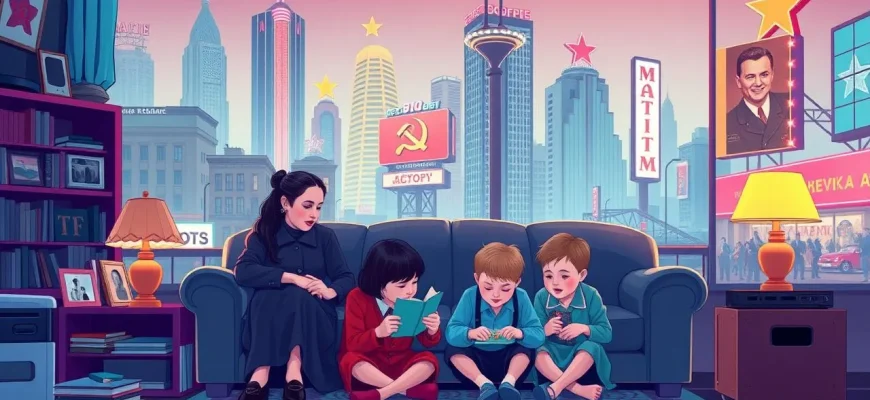Soviet cinema has always been rich with themes of family, duty, and the complexities of human relationships. This curated list of films delves into the portrayal of parents in Soviet society, offering a unique perspective on the roles, struggles, and joys of parenthood. These films not only entertain but also provide a window into the cultural and historical context of the Soviet Union, making them invaluable for anyone interested in understanding the nuances of family life during that era.
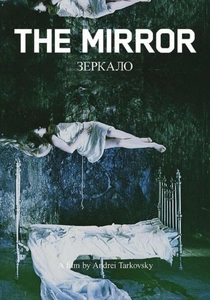
The Mirror (1975)
Description: A deeply personal film by Tarkovsky, it reflects on his own childhood and the influence of his mother, exploring themes of memory, time, and family.
Fact: The film uses a non-linear narrative structure, blending past and present, which was innovative for its time.
 Watch Now
Watch Now

The Ascent (1977)
Description: While primarily a war film, it delves into themes of sacrifice and the moral dilemmas faced by parents during wartime, particularly through the character of Rybak.
Fact: Larisa Shepitko, the director, tragically died in a car accident shortly after the film's release.
 Watch Now
Watch Now
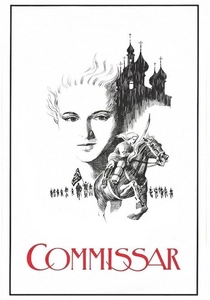
The Commissar (1967)
Description: This film portrays the relationship between a pregnant commissar and a Jewish family, highlighting the universal aspects of motherhood and family bonds.
Fact: It was banned in the Soviet Union for 20 years due to its sensitive portrayal of Jewish characters.
 Watch Now
Watch Now
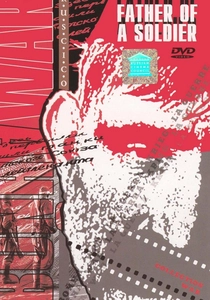
Father of a Soldier (1964)
Description: A poignant tale of a father's journey to find his son on the front lines, showcasing the depth of parental love and the lengths parents will go to protect their children.
Fact: The film was based on a true story, and its director, Rezo Chkheidze, was awarded the USSR State Prize for this work.
 Watch Now
Watch Now
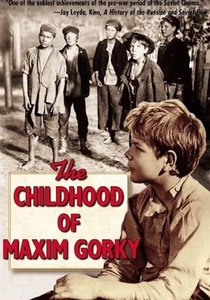
The Childhood of Maxim Gorky (1938)
Description: This biographical film explores the harsh upbringing of the famous writer, focusing on the influence of his grandmother, a figure of parental care amidst adversity.
Fact: It was one of the first Soviet films to receive international acclaim, winning the Grand Prix at the Venice Film Festival.
 30 Days Free
30 Days Free
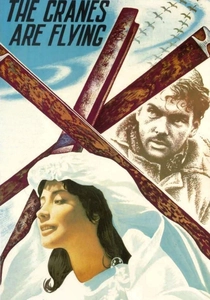
The Cranes Are Flying (1957)
Description: This film captures the emotional turmoil of a young woman, Veronika, as she navigates life during WWII, highlighting the sacrifices made by parents for their children's future.
Fact: It won the Palme d'Or at the Cannes Film Festival in 1958, becoming the first Soviet film to receive this honor.
 30 Days Free
30 Days Free

The Return (2003)
Description: Although post-Soviet, it captures the essence of Soviet family dynamics, focusing on the sudden return of a father and his impact on his sons.
Fact: It was Russia's submission for the Academy Award for Best Foreign Language Film in
 30 Days Free
30 Days Free

The House I Live In (1957)
Description: This film examines the life of a family living in a communal apartment, showcasing the challenges and bonds of family life in Soviet times.
Fact: It was one of the first Soviet films to openly discuss the housing crisis in the USSR.
 30 Days Free
30 Days Free

The Story of Asya Klyachina (1966)
Description: A complex narrative about a woman's life, her relationships, and the impact of her decisions on her family, reflecting on the broader societal changes.
Fact: The film was initially banned and only released in 1988, after the director's death.
 30 Days Free
30 Days Free

The Unvanquished (1945)
Description: A story of a mother's resilience during WWII, showcasing the strength and sacrifices of Soviet parents in wartime.
Fact: It was one of the first Soviet films to deal with the theme of the Great Patriotic War, focusing on the home front.
 30 Days Free
30 Days Free

